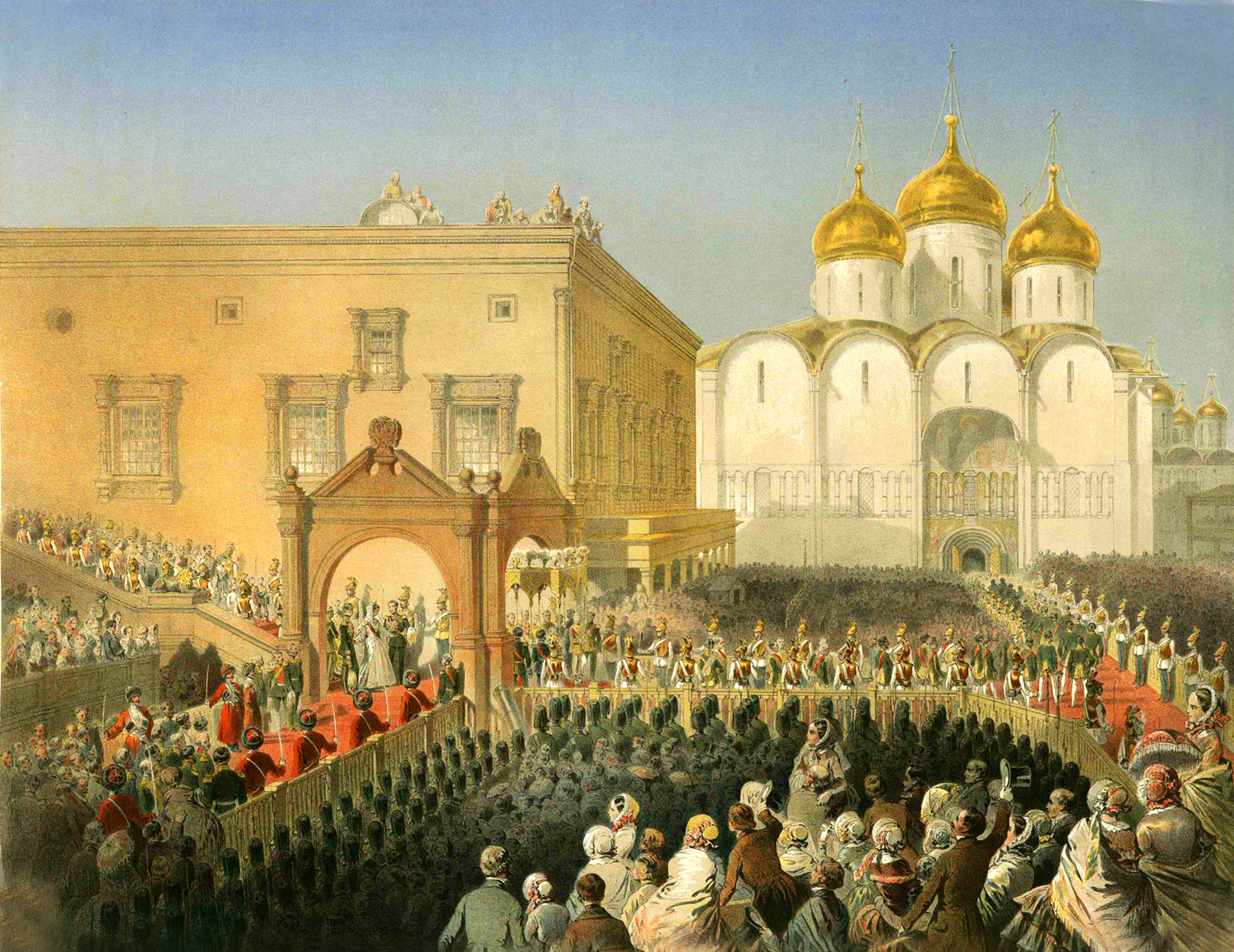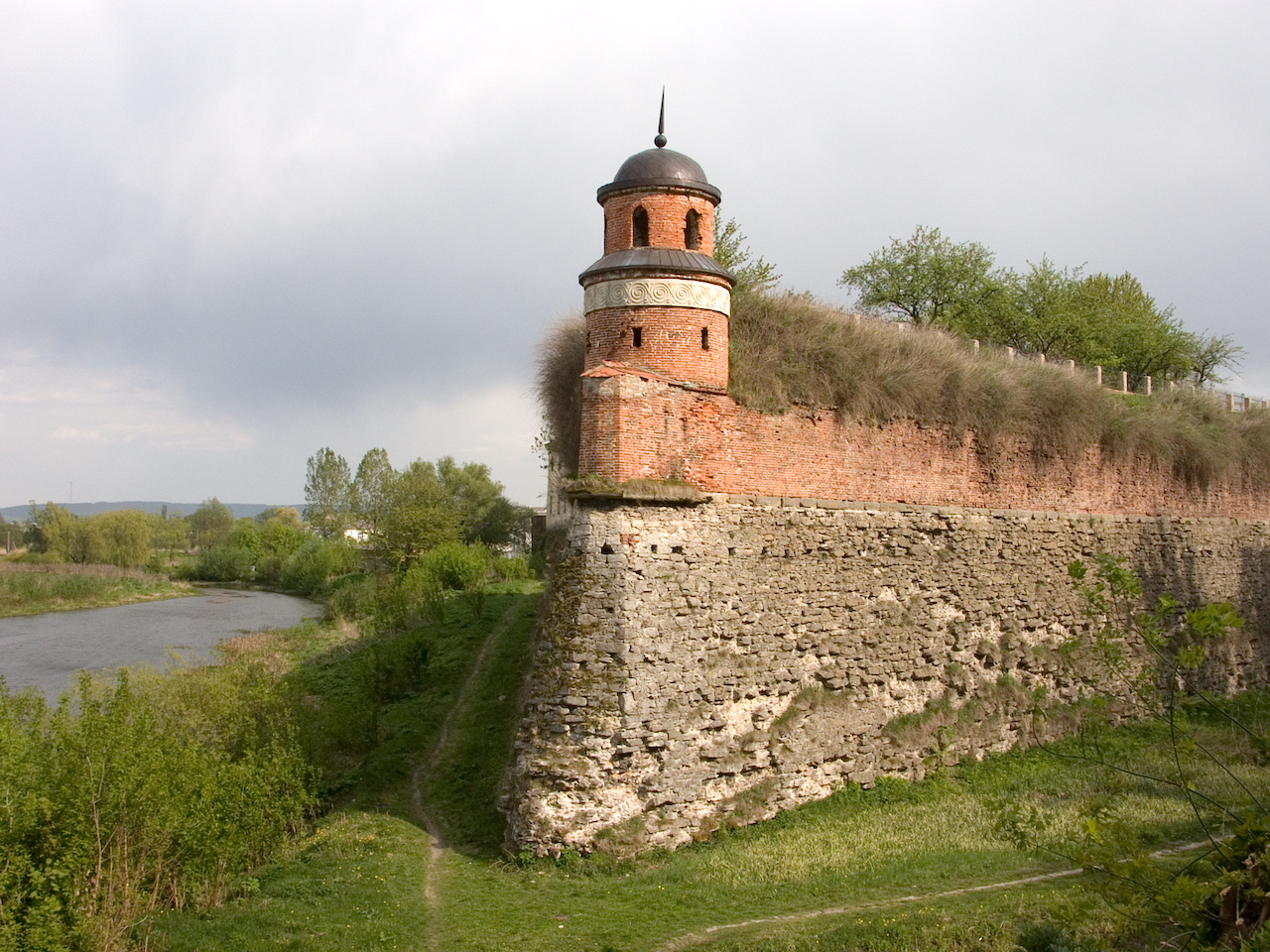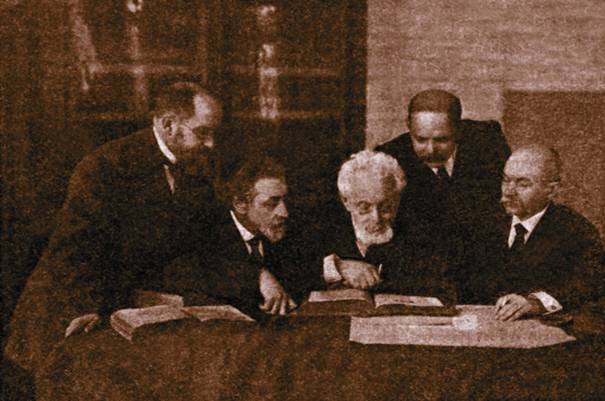|
Abraham Dov Ber Gottlober
Avrom Ber Gotlober (; 14 January 1811 – 12 April 1899), also known by the pen names Abag () and Mahalalel (), was a Russian Maskilic writer, poet, playwright, historian, journalist and educator. His first collection was published in 1835. Biography Avrom Ber Gotlober was born to a Jewish family in Starokonstantinov, where he received a traditional Jewish education. His father was a ''ḥazzan'' who sympathized with the progressive movement. At the age of fourteen Gotlober married the daughter of a wealthy Hasid in Chernigov, and settled there. When his inclination for secular knowledge became known, his father-in-law, on the advice of a Hasidic rabbi, caused the young couple to be divorced. After a failed second marriage, in 1830, he married for the third time and settled in Kremenetz, where he formed a lasting acquaintance with Isaac Baer Levinsohn. Gotlober traveled and taught from 1836 to 1851, when he went to Zhitomir and passed the teachers' examinations at the rabbini ... [...More Info...] [...Related Items...] OR: [Wikipedia] [Google] [Baidu] |
Starokostiantyniv
Starokostiantyniv (, ; or ; ) is a city in Khmelnytskyi Raion, Khmelnytskyi Oblast (province) of western Ukraine. It hosts the administration of Starokostiantyniv urban hromada, one of the hromadas of Ukraine. Population: In 2025, about 30,000 people live there. History Starokostiantyniv was founded in the 16th century when Konstanty Ostrogski built a fortress at the village of Kolishchentsi. The surviving Starokostiantyniv Castle was constructed by his son between 1561 and 1571. The village grew into a town which became known as "Old Constantine's Town" (''Kostiantyniv Staryi'') to prevent confusion with "New Constantine's Town" in the vicinity. It became a private town of Poland, owned by the Ostrogski family. It was part of Polish Volhynian Voivodeship in the Lesser Poland Province. 1648 saw the Battle of Starokostiantyniv. The 1st Infantry Regiment of the Polish Crown Army was stationed in the town in 1791 before it was relocated to Kalisz. The town is home to an airf ... [...More Info...] [...Related Items...] OR: [Wikipedia] [Google] [Baidu] |
Kremenets
Kremenets (, ; ; ) is a city in Ternopil Oblast, western Ukraine. It is the administrative center of the Kremenets Raion, and lies north-east of the Pochaiv Lavra. The city is situated in the historic region of Volhynia and features the 12th-century Kremenets Castle. It hosts the administration of Kremenets urban hromada, one of the hromadas of Ukraine. Population: History According to some sources the Kremenets fortress was built in the 8th or 9th century, and later became a part of Kievan Rus'. The first documented reference to the fortress is given in a Polish encyclopedic dictionary written in 1064. The first reference to Kremenets in Old Slavic literature dates from 1226 when the city's ruler, Mstislav the Bold, defeated the Hungarian army of King Andrew II nearby. During the Mongol invasion of Rus' in 1240–1241, Kremenets was one of few cities that Batu Khan failed to capture. In 1382, after the death of Louis I of Hungary, Lithuanian duke Liubartas captured Kreme ... [...More Info...] [...Related Items...] OR: [Wikipedia] [Google] [Baidu] |
Alexander II Of Russia
Alexander II ( rus, Алекса́ндр II Никола́евич, Aleksándr II Nikoláyevich, p=ɐlʲɪˈksandr ftɐˈroj nʲɪkɐˈlajɪvʲɪtɕ; 29 April 181813 March 1881) was Emperor of Russia, Congress Poland, King of Poland and Grand Duke of Finland from 2 March 1855 until Assassination of Alexander II of Russia, his assassination in 1881. Alexander's most significant reform as emperor was the emancipation reform of 1861, emancipation of Serfdom in Russia, Russia's serfs in 1861, for which he is known as Alexander the Liberator ( rus, Алекса́ндр Освободи́тель, r=Aleksándr Osvobodítel, p=ɐlʲɪˈksandr ɐsvəbɐˈdʲitʲɪlʲ). The tsar was responsible for other Liberalism, liberal reforms, including reorganizing the judicial system, setting up elected local judges, abolishing corporal punishment, promoting local self-government through the ''zemstvo'' system, imposing universal military service, ending some privileges of the nobility, and promot ... [...More Info...] [...Related Items...] OR: [Wikipedia] [Google] [Baidu] |
Coronation Of The Russian Monarch
The coronation of the emperor of Russia (generally referred to as the Tsar) from 1547 to 1917, was a highly developed religious ceremony in which he was crowned and invested with regalia, then anointed with chrism and formally blessed by the church to commence his reign. Although rulers of Muscovy had been crowned prior to the reign of Ivan III, their coronation rituals assumed overt Byzantine overtones as the result of the influence of Ivan's wife Sophia Paleologue, and the imperial ambitions of his grandson, Ivan the Terrible. The modern coronation, introducing "Western European-style" elements, replaced the previous "crowning" ceremony and was first used for Catherine I in 1724.Scenarios of Power Princeton University Press. Since tsarist Russia claimed to be the " ... [...More Info...] [...Related Items...] OR: [Wikipedia] [Google] [Baidu] |
Treaty Of Paris (1856)
The Treaty of Paris of 1856, signed on 30 March 1856 at the Congress of Paris (1856), Congress of Paris, brought an end to the Crimean War (1853–1856) between the Russian Empire and an alliance of the Ottoman Empire, the United Kingdom of Great Britain and Ireland, United Kingdom, the Second French Empire and the Kingdom of Sardinia. The treaty diminished Russian influence in the region. It returned Sevastopol and other towns and cities in the south of Crimea to Russia, but prohibited Russia to establish naval or military arsenal on the coast of the Black Sea, that was made neutral territory, closing it to all warships and prohibiting fortifications and the presence of armaments on its shores. The treaty also had Russia return to Moldavia part of its territory it had annexed in 1812 (to the mouth of the Danube, in southern Bessarabia). Russia lost any claim to influence the Danubian principalities and the Principality of Serbia, or to protect Christians in the Ottoman Empir ... [...More Info...] [...Related Items...] OR: [Wikipedia] [Google] [Baidu] |
Nicholas I Of Russia
Nicholas I, group=pron (Russian language, Russian: Николай I Павлович; – ) was Emperor of Russia, List of rulers of Partitioned Poland#Kings of the Kingdom of Poland, King of Congress Poland, and Grand Duke of Finland from 1825 to 1855. He was the third son of Paul I of Russia, Paul I and younger brother of his predecessor, Alexander I of Russia, Alexander I. Nicholas's thirty-year reign began with the failed Decembrist revolt. He is mainly remembered as a reactionary whose controversial reign was marked by geographical expansion, centralisation of administrative policies, and repression of dissent both in Imperial Russia, Russia and among its neighbors. Nicholas had a happy marriage that produced a large family, with all of their seven children surviving childhood. Nicholas's biographer Nicholas V. Riasanovsky said that he displayed determination, singleness of purpose, and an iron will, along with a powerful sense of duty and a dedication to very hard work. ... [...More Info...] [...Related Items...] OR: [Wikipedia] [Google] [Baidu] |
Modern Hebrew
Modern Hebrew (, or ), also known as Israeli Hebrew or simply Hebrew, is the Standard language, standard form of the Hebrew language spoken today. It is the only surviving Canaanite language, as well as one of the List of languages by first written account, oldest languages still spoken as a native language, native language, on account of Hebrew being attested since the 2nd millennium BC. It uses the Hebrew Alphabet, an Abjad, abjad script written from right-to-left. The current standard was Codification (linguistics), codified as part of the revival of Hebrew in the late 19th and early 20th centuries, and now serves as the Official language, sole official and national language of the State of Israel, where it is Languages of Israel, predominantly spoken by over 9 million people. Thus, Modern Hebrew is near universally regarded as the most successful instance of language revitalization in history. A Northwest Semitic language within the Afroasiatic languages, Afroasiatic langu ... [...More Info...] [...Related Items...] OR: [Wikipedia] [Google] [Baidu] |
Kaunas
Kaunas (; ) is the second-largest city in Lithuania after Vilnius, the fourth largest List of cities in the Baltic states by population, city in the Baltic States and an important centre of Lithuanian economic, academic, and cultural life. Kaunas was the largest city and the centre of a in the Duchy of Trakai of the Grand Duchy of Lithuania and Trakai Voivodeship, Trakai Palatinate since 1413. In the Russian Empire, it was the capital of the Kovno Governorate, Kaunas Governorate from 1843 to 1915. During the interwar period, it served as the temporary capital of Lithuania, when Vilnius was Polish–Lithuanian War, seized and controlled by Second Polish Republic, Poland between 1920 and 1939. During that period Kaunas was celebrated for its rich cultural and academic life, fashion, construction of countless Art Deco and Lithuanian National Revival architectural-style buildings as well as popular furniture, interior design of the time, and a widespread café culture. The city in ... [...More Info...] [...Related Items...] OR: [Wikipedia] [Google] [Baidu] |
Dubno
Dubno (, ) is a List of cities in Ukraine, city and List of hromadas of Ukraine, municipality located on the Ikva River in Rivne Oblast (oblast, province) of western Ukraine. It serves as the capital city, administrative center of Dubno Raion (raion, district). The city is located on intersection of two major European routes, E40 and E85. The city is estimated to have a population of . It is located within the historic region of Volhynia. In Soviet times it was home to the Cold War facility Dubno (air base), Dubno air base. The city is also famous for its Dubno Castle, castle. History Middle Ages First mentioned in a chronicle of 1100, when it was in possession of Yaroslav the Wise's grandson David of Brest , Dubno was even a seat of local princes for a short period of time. In 1240 the town was raided by the Mongol Empire, Mongols. In the early 14th century the region was the subject of Kingdom of Poland (1025-1385), Polish-Grand Duchy of Lithuania, Lithuanian rivalry, as ... [...More Info...] [...Related Items...] OR: [Wikipedia] [Google] [Baidu] |
Abraham Goldfaden
Abraham Goldfaden (; born Avrum Goldnfoden; 24 July 1840 – 9 January 1908), also known as Avram Goldfaden, was a Russian-born Jewish poet, playwright, stage director and actor in Yiddish and Hebrew languages and author of some 40 plays. Goldfaden is considered the father of modern Jewish theatre. In 1876 he founded in the United Principalities of Moldavia and Wallachia what is generally credited as the world's first professional Yiddish-language theatre troupe. He was also responsible for the first Hebrew-language play performed in the United States. The Avram Goldfaden Festival of Iaşi, Romania, is named after him and held in his honour. Jacob Sternberg called him "the Prince Charming who woke up the lethargic Romanian Jewish culture". Israil Bercovici wrote of his works: "we find points in common with what we now call 'total theatre'. In many of his plays he alternates prose and verse, pantomime and dance, moments of acrobatics and some of ''jonglerie'', and even of spi ... [...More Info...] [...Related Items...] OR: [Wikipedia] [Google] [Baidu] |
Sholom Aleichem
Solomon Naumovich Rabinovich (; May 13, 1916), better known under his pen name Sholem Aleichem (Yiddish and , also spelled in Soviet Yiddish, ; Russian and ), was a Yiddish author and playwright who lived in the Russian Empire and in the United States. The 1964 musical ''Fiddler on the Roof'', based on Aleichem's stories about Tevye the Dairyman, was the first commercially successful English-language stage production about Jewish life in Eastern Europe. The Hebrew phrase שלום עליכם (shalom aleichem) literally means " aypeace eupon you!", and is a greeting in traditional Hebrew and Yiddish. Biography Solomon Naumovich (Sholom Nohumovich) Rabinovich () was born in 1859 in Pereiaslav and grew up in the nearby ''shtetl'' of Voronkiv, in the Poltava Governorate of the Russian Empire (now in the Kyiv Oblast of central Ukraine). (Voronkiv has become the prototype of Aleichem's Kasrilevka.) His father, Menachem-Nukhem Rabinovich, was a rich merchant at that time.. How ... [...More Info...] [...Related Items...] OR: [Wikipedia] [Google] [Baidu] |
Mendele Mocher Sforim
Mendele Mocher Sforim (, ; lit. "Mendele the book peddler"; January 2, 1836, Kapyl – December 8, 1917 .S. Odessa), born Sholem Yankev Abramovich (, ) or S. J. Abramowitch, was a Jewish author and one of the founders of modern Yiddish and Hebrew literature. His name was variously transliterated as Moykher, Sfarim, Seforim, etc. Youth Mendele was born to a poor Lithuanian Jewish family in Kapyl, Minsk Governorate, Russian Empire. His father, Chaim Moyshe Broyde, died shortly after Mendele's bar mitzvah. He studied in yeshiva in Slutsk and Vilna until he was 17; during this time he was a day-boarder under the system of '' Teg-essen'', barely scraping by, and often hungry. Mendele traveled extensively around Belarus, Ukraine and Lithuania at the mercy of an abusive beggar named Avreml Khromoy ( Russian for "Avreml the Lame"); Avreml would later become the source for the title character of ''Fishke der Krumer'' (Fishke the Lame). In 1854, Mendele settled in Kamianets-Podilskyi, ... [...More Info...] [...Related Items...] OR: [Wikipedia] [Google] [Baidu] |









